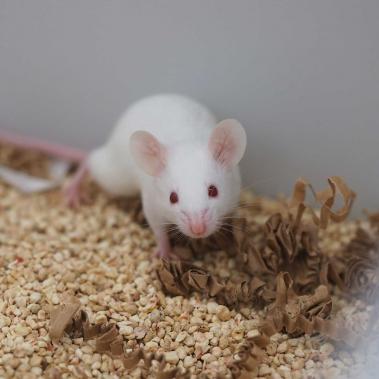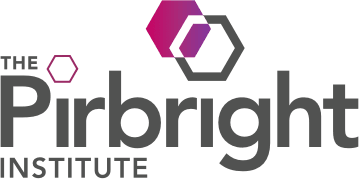Research programmes at The Pirbright Institute only use animals when there are no alternatives.
The Pirbright Institute mostly works with farm species; the species that will principally benefit from our research e.g. cattle, pigs, goats, sheep and poultry. In common with many UK animal facilities, The Pirbright Institute also works with mice, rabbits and guinea pigs.
Animal sourcing
 Farm animal species (e.g. cattle, pigs, goats, sheep) are either sourced from The Pirbright Institute’s own herds or from a list of approved suppliers.
Farm animal species (e.g. cattle, pigs, goats, sheep) are either sourced from The Pirbright Institute’s own herds or from a list of approved suppliers.
All small animal species (e.g. mice, guinea pigs, rabbits) are purchased from a licenced breeding establishment. These animals are listed in Schedule 2 of ASPA.
Animals sourced for use at The Pirbright Institute are subject to health screening programs to ensure animal welfare and health is of the highest standard.
Animal housing
Our animal facilities meet (and where possible, exceed) the ‘Code of Practice for the Housing and Care of Animals Bred, Supplied or Used for Scientific Purposes.’ The purpose of this Code of Practice is to ensure that the design, construction and function of the installations and equipment of licenced establishments – along with staffing, care and practices – allow procedures to be carried out as effectively as possible.
Ventilation, lighting, noise, housing, feeding, watering and sleeping areas are amongst the many areas covered by the Code of Practice and of which The Pirbright Institute complies.
Animals are housed in rooms, pens, cages or isolators which are cleaned and changed frequently to maintain a healthy, clean environment.
All animals are provided with the rations appropriate to their species i.e. ruminants are fed ad-lib hay and a specific concentrate ration. Animals are weighed to ensure appropriate volumes are provided.
All animals are kept in the best possible environment available to ensure and maintain their health and welfare. They are housed in rooms, pens, cages or isolators (dependent on species and study requirements) with bedding and nesting material. Enrichment is available to provide a stimulating environment in order for the animals to demonstrate their species typical behavior and to enhance and ensure their well-being. Animals are also housed in groups where possible to allow for normal social interaction.
The Pirbright Institute provides all species with a range of enrichment items. Large animals are provided with mineral licks, brushes, treats, bedding material and/or rubber matting. Small animals are provided with red polycarbonate huts which provides them with a sense of security and shelter by reducing the level of perceived light, running wheels, tubes, fruit and vegetables, nest boxes and nesting material.

